November 7th, 2018 •
Comments Off on Everything You Need To Know About Sleep Hygiene
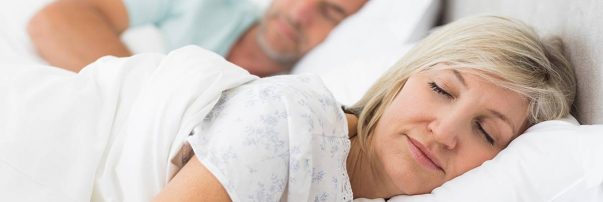
Are you one of many people who struggle to find and keep a regular and healthy sleeping pattern? With the rise of the 24/7 economy, smartphones, tablets and social media, the simple task of going to sleep at night is for many of us, not so simple anymore.
“Sleep Hygiene” is a relatively new term, but the concept is as old as that of mankind. It simply means a range of techniques and tools that can be used to develop and maintain a healthy sleeping routine. These can vary from eating the right foods, managing screen time, getting rid of sources of light in the bedroom, and many more.
In this article I’m going to explain everything you need to know about restoring, developing and maintaining a healthy bedtime routine and sleeping pattern. Do you believe you already have a great sleeping routine? Believe me, with this long list of helpful tips and tricks you’ll get the best sleep of your life!
1. Create a peaceful environment
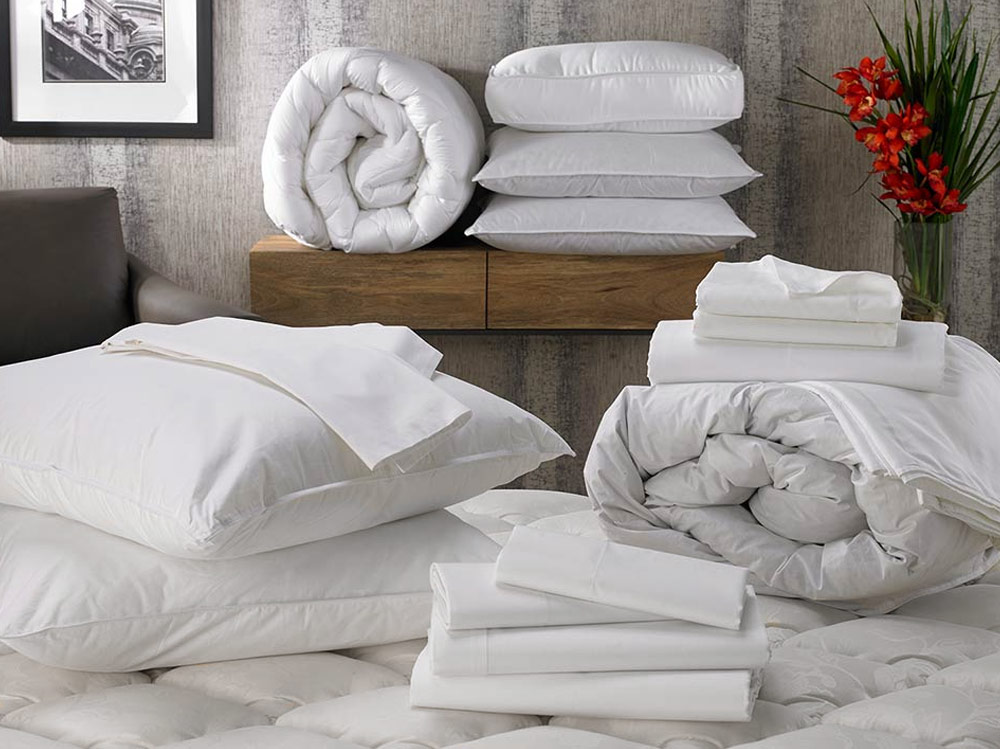
Use Comfortable Bedding
It’s amazing to see just how long some people continue to use uncomfortable bedding. It’s key to a good night’s sleep to find out what is right for you. When it comes to your bedding staples, elements to consider are; the material of your sheets, the shape and firmness of your pillows, the size and firmness of your mattress, the thickness and tog count of your duvet.
Set The Right Temperature
The temperature in your room can have a huge positive impact on your sleeping habits. Some prefer a warmer bedroom, so that they will still feel comfortable when laying in bed without layers of sheets or quilts on top. Others like to have a colder bedroom so that they can feel the nice warm temperature from underneath their duvets. Temperature is very much dependent on the type of person you are and whether you are more a Summer person or a Winter person. No matter what your personal preference is, bedroom temperature is a factor that you can easily control and should not be overlooked.
Reduce Noise
Most people would agree that a calm, quiet surrounding works best for them when trying to sleep. There are a lot of ways you can reduce the amount of noise in your bedroom. These include closing your windows to block out external noise and making sure all of your mobile devices are turned off. Another great option for reducing noise is to use a comfortable, good pair of earplugs. Foam earplugs are among the most popular because they are cheap and will easily mold to the shape of your ears. They block out nearly all sounds, allowing you to fully relax.
There may be some noises that you just can’t block out that easily (such as a snoring partner). In these cases, consider investing in a white noise generator. These handy devices can play white noise or simulated noises such as, rainfall, waterfalls or even ceiling fans. You can also find white noise generator apps on your Android smartphone or iPhone.
Remove Sources Of Light
Light suppresses the production of melatonin, a hormone made by the pineal gland, that’s involved in sleep initiation. Most people switch off their bedroom lights before they go to sleep, but there can also be other sources of light that you may be able to eliminate in your bedroom.
You can eliminate sources of light by investing in some darker, heavier curtains, fully turning off appliances (so there are also no standby lights) or even choose to wear a sleep mask.
Set Boundaries For Your Bedroom
With so many big advancements in technology and increasingly more entertainment options, many bedrooms changed into a multipurpose room much like an office, lounge or game room. With the presence of televisions, laptops, mobile phones and tablets, it’s easy for your brain to “view” the bedroom as a place that it’s really not. Make sure to set boundaries for your bedroom usage; think of your bedroom as only a place for sleep and intimacy. As soon as you have set this boundary you may find yourself falling asleep much more peacefully and swiftly.
2. Things to eat (and not to eat) before bed

Below is a list of sleep-promoting foods that you can nibble on before bedtime.
- Milk
Turns out mom was right about drinking a warm glass of milk before bed. Milk (and other dairy products) contains an amino acid called tryptophan which help induce sleep.
- Bananas
Bananas are a good source of magnesium and potassium which help relax the muscles. Combine this with the carbohydrate content of the banana, and you have a great sleep-promoting snack.
- Cherries
Cherries are one of the only natural food sources of melatonin. Melatonin is a chemical that helps to control and regulate your body’s internal clock. Researchers suggest to eat a handful of the fruit an hours before bedtime to help regulate your sleeping pattern.
And now it’s time for a short list of the foods that you best need to avoid before bedtime.
- Coffee
It’s a public secret that coffee contains large amounts of caffeine, a major stimulant for the central nervous system. Caffeine increases levels of stress hormones in the body making it difficult for your body to rest. Research suggests that coffee can reduce sleep quality even when taken six hours before bedtime.
- Alcohol
Alcohol consumption can cause sleep disturbance and induce sleep disorders. Even moderate amounts of alcohol in your body at bedtime alters your natural flow of sleep through different stages. It also results in lighter, more restless sleep as the night progresses, diminished sleep quality, and next-day fatigue.
- Dark Chocolate
Chocolate can awaken the taste buds and stir affection. But it can potentially disrupt your sleep. Like coffee, it contains caffeine but also theobromine, another stimulant which increases heart rate and causes sleeplessness
3. Manage your screen time
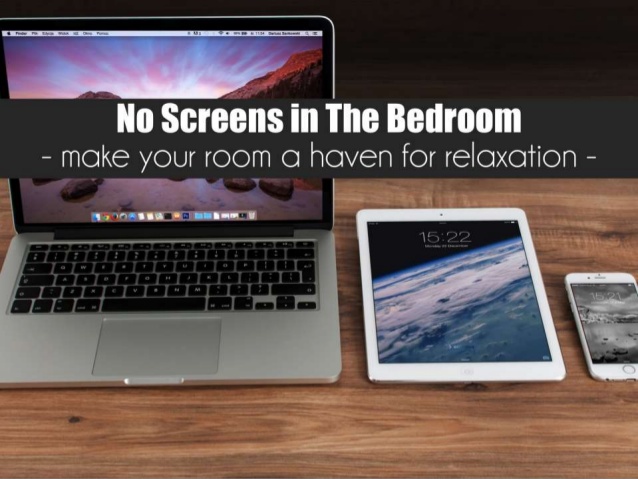
No TV In Your Bedroom
The television is enemy number 1 when it comes to trying to get to sleep. With hundreds of TV series and movies on Netflix to choose from, there is always something that you will be tempted to watch, no matter what time it is. To help you deal with this temptation it’s best to have no TV in your bedroom (or maybe even get rid of it altogether). When you have no TV in your bedroom your brain will realize that once you have entered your bedroom it’s time for some well-deserved rest.
Reduce Mobile Phone & Tablet Usage
Similarly, and quite possibly even worse, is the way in which your sleeping plans can be disrupted by the ringing sound of a text message or buzz of an Instagram notification. Nowadays we are glued to our smartphones and tablets, browsing news, keeping a close eye on social media and entertainment websites. It can be difficult to turn off your phone at night, but disconnecting from the online world is an absolute must if you want to have a good night’s rest.
Turn Off All Devices At Least 30 Minutes Before Bed
Continuing on from above, I personally highly recommend ending all social media activities, messaging and entertainment apps at least thirty minutes before you want to go to bed. Research shows that using screens before bedtime interferes with your body’s production of melatonin.
Do Not Check Devices During The Night
This should go without saying. But do not check your phone or tablet every time you wake up during the night. Unfortunately for a lot of people it’s become a second nature when they wake up during the night to roll over, look at the time, check their messages, maybe even Facebook, before trying to go back to sleep. Exposure to a bright screen, no matter how short you look, can prevent you from going back to sleep.
4.The value of routine
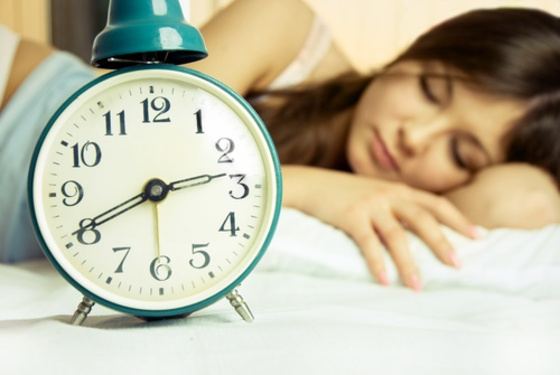
Stick To A Regular Alarm Time
A key element for developing a healthy sleeping pattern is setting your alarm and waking up every day at the same time. This excludes snoozing for an hour, that’s literally one of the worst things you can do. Some people snooze for an hour, until they are running late and are forced to rush through their morning routine.
As a way of waking up gently, consider setting your alarm 20 or 30 minutes before you actually have to get up out of bed. That way you can ease yourself into the morning without feeling the stress of having to rush things. Consider even buying an alarm clock that wakes you up slowly by a combination of gradually increasing sound and light. This is a much more natural way to wake up, then the traditional noisy alarm sounds.
Stick To A Regular Bed Time
Equally important to setting a regular wake-up time is sticking to a regular bedtime in the evening. One of the worst things you can do is having a varied, erratic bedtime in the evening when you want to train your brain to sleep. It’s best to keep a consistent sleep schedule so that your Circadian rhythm keeps functioning as it should.
By going to bed every night at, for let’s say, 10:00pm, you are training your brain to shut down at this specific time. This will help you to feel more calm and having less mental when trying to fall asleep.
Create A Regular Pre-Bedtime Routine
Also a very great way to get a regular sleeping pattern is to adopt a consistent pre-bedtime routine. This may include taking a hot shower/bath, your nightly beauty regime, drinking a cup of warm milk, or just some good old light reading. When you do these things consistently, after a while it becomes a second nature, just like brushing your teeth. Soon your body will start to recognize these actions as prelude to going to bed.
5.Daytime sleep-promoting habits

Regular and moderate exercise
Everybody knows that moderate exercise keeps you fit and helps you staying healthy. You can do a lot of things like cycling to work, taking a walk in the park, or going to the gym for instance. These activities all cause your body to expend energy and produce endorphines. When you exercise, you not only feel better during the day, but you’ll sleep better during the night as well. Research shows that moderate exercise improves sleep quality, increases sleep amounts, reduces stress and relieves anxiety and helps with insomnia and sleep disorders!
Avoid caffeine six hours before bed
This has been mentioned before, but it cannot be stressed enough. If you are one of the many people who need huge amounts of coffee just to make it through the day, then it may be wise to seriously reconsider your favorite cup of joe. The strong stimulating effects of caffeine on your body may not only disrupt your sleep, but may also contribute to adrenal fatigue. Even having your final cup of coffee at 17.00 or 18.00 can still have a negative impact on your sleep.
Caffeine is not only found in coffee but also in other drinks and foods such as energy drinks, cola, dark chocolate and even tea. It’s better to stick to herbal teas, water, or (warm) milk especially during the evening for a good night of sleep.
Expose yourself to early morning sunlight
It might sound counter-intuitive but early-morning sunlight helps you sleep at night. Light signals your brain that it is time to wake up. This is very obvious to anybody who switches on the light at night and had difficulties falling asleep afterwards. But less known is that being exposed to light during other times in the day, especially in the morning, may actually help you fall asleep at night.
Light regulates the body’s internal clock and keeps it on track. But there appears to be built in in the brain some sort of a drift forward. If you stay up later and wake up later, you enforce this drift which may cause you trouble falling asleep and waking up when you need to. To counter this effect you can “reset” your biological clock with morning sunlight so that it stays in line with earth’s 24-hour daily rhythm. Aim for at least 30 to 60 minutes of time in natural daylight per day.
Do not take nap (unless you really need to)
Depending on your agenda and daily work schedule it can be very refreshing to take a nap during the day. But sometimes taking naps can interfere with getting good sleep at night. If this is the case for you then do not take naps.
Having said that, if you suffer from adrenal fatigue, taking a 30 minute nap in the afternoon may be of great benefit. So if you notice that your naps are not preventing you from falling asleep at night, then there’s no problem taking naps.
6. Additional tips
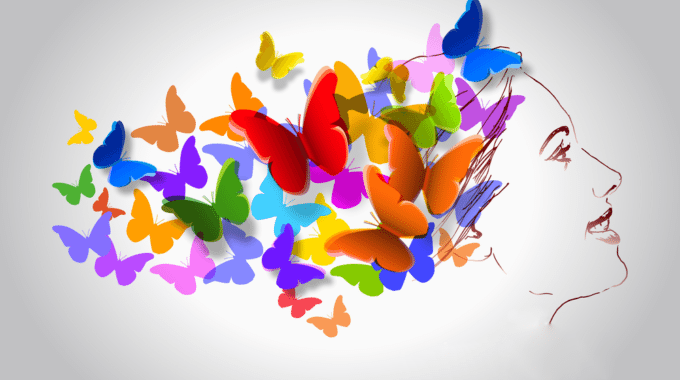
4-7-8- Relaxing Breath
Breathing techniques are an ancient and powerful way to remove stress and tension from the body and an excellent way to bring your body into a relaxed state as part of an easy transition to sleep. Dr. Weil, a Harvard trained doctor, introduced the following technique and claims that if you practice this every day twice, after 2 months you’ll start to fall asleep within 1 minute.
Here is how it works: breathe in slowly through your nose for 4 seconds. The hold your breathe for 7 seconds, before you exhale for 8 seconds. This is one breath cycle. You may read more here
Progressive Muscle Relaxation
This is a deep relaxation technique that can be done while seated or laying down in bed and has been proven to be effective in bringing the body into a relaxed state and making it easier for you to fall asleep, or return to sleep.
Here is how it works: Start with your feet and while inhaling tense all of the little muscles in your feet as tightly as you can. Hold for up to 10 seconds before you completely relax the muscles in your feet again. Now work your way up from your feet all the way to the top of your head. Hit as many muscles and body parts as you can. The combination of this quick, intense constriction of muscles followed by an equally quick release helps relax your body and is a fast way of guiding you towards sleep.
Imagine A Peaceful Visualization
Visualizations can be a great way to help you unwind, relieve stress and fall asleep. Instead of thinking about fearful or anxious images, visualization helps you to focus on calming and restful images. Close your eyes and imagine a peaceful and tranquil place. A place where falling asleep and staying asleep is simply the most natural thing in the world. It’s a place where, no matter what you do, it’s simply too hard to stay awake. You may come up with a place from a past experience or you may come up with a new one.
Some ideas for places are: a tent in the mountains, a lakeside cabin, a hammock on a tropical beach, or a soft fluffy bed in a luxurious hotel room. Make sure to use all of your senses, imagine the color of the lake, the slow swaying of the hammock, the smell of water etc. Just keep adding details for your ultimate sleep experience.
Do You Get Sufficient Sleep?
Sleep plays an essential role in good health and well-being throughout your life. It give your body the chance to repair and heal from the day’s activities. Even though some people believe they can function great on just 4 or 5 hours of sleep per night, this is seldomly true for anything but a short period of time. At some point we’ll all pay the price for a lack of sleep, and usually this shows in deteriorating health and energy levels.
Should you not be getting at least 7 hours of high quality sleep per night, it’s time to apply some of the tips from this article into your life.
Of course, you may have already tried all these methods and still struggle with poor sleep. Some people are simply prone to insomnia and sleep problems due to genetic or other reasons. If you are one of those people, consider the use of a sleep aid. One great sleeping aid is Better Rest from The Calm Company because it is a natural sleep aid that contains melatonin, magnesium and other herbs such as valerian, chamomile and passion flower.
Magnesium glycinate is used over the cheaper magnesium citrate, and the product is third-party tested. This combination of herbs can help you fall asleep faster and sleep sounder. Just make sure to let your brain relax by turning off the television and not looking at a computer or smart phone screen, and you will be on your way to a restful night of sleep.
Good luck and sleep tight!


















